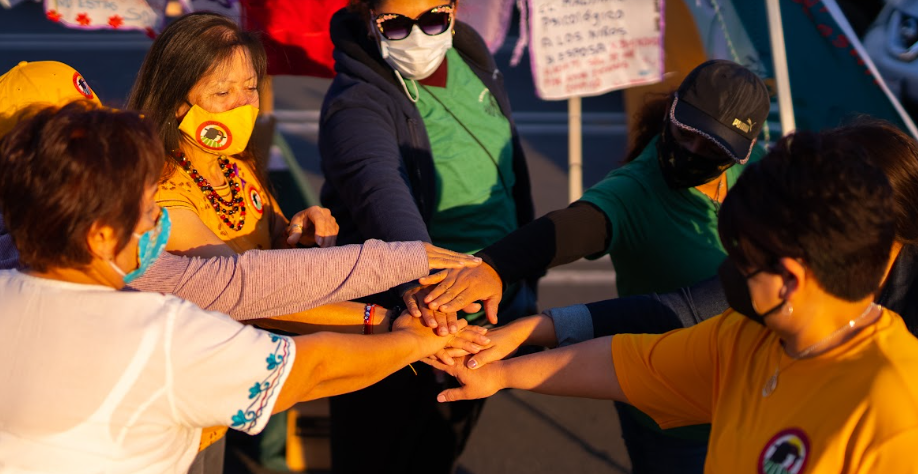The Importance of Farmworker Women and Representation

It is no secret that the general duties and responsibilities of a farmworker are tough. Farmworkers have to wake up at the crack of dawn, work long hours throughout the day, take on physically demanding tasks, and are constantly exposed to countless dangerous factors.
Being a woman in the farmworker community has its distinct set of challenges, both in the fields and out. For instance, 8 out of 10 farmworker women experience sexual harassment on the job. To add , many women who are pregnant are greatly affected by pesticide poisoning, with many giving birth to children with special needs. These are just a few of the many issues farmworker women deal with. There are, however, much more that goes beyond the fields.
There had been a lack of representation for farmworker women for decades. Powerful figures like Dolores Huerta pioneered representation for not only farmworkers, but farmworker women. This would inspire more women subsequently to form and organize, fighting for the same causes she did.
To give a little background, farmworker mobilization that was led by women did not take place until the late 1980’s. One of the first groups that emerged at that time called themselves, Mujeres Mexicanas. They began in the Coachella Valley, setting up several conferences to center around farmworker women issues. These conferences and actions would result in finally declaring to organize a national network of farmworker women. The first organization to come out of this was Lideres Campesinas, which was officially founded in the early 1990’s. This movement would organize all around the state of California, fighting to raise awareness concerning farmworker women issues and advocate for change. Many organizations would follow this movement, one of those being Alianza Nacional de Campesinas.
Alianza was officially founded in 2011, but had been in the works for nearly 20 years before that. Mily Trevino-Sauceda, Executive Director of Alianza, not only expressed the importance of representing farmworker women, but why she herself represents farmworker women, “I lived it, my family lived it, my relatives lived it. The same kind of experiences that I faced as a woman in the fields, the gender discrimination I’m talking about…I didn’t think that was a fear that other women had until we started organizing as women. We started talking about our own experiences and found, who better to deal with the issues of farmworker women than farmworker women themselves.”
For farmworker women, there are many different things that need to be taken on. Mily continued, saying that women would “put the family before anything. They’re the ones who have to deal with getting groceries, washing the clothes. As they come back from work, they need to make sure they have dinner ready for everybody. Then prepare not only their lunch, but for their children.”
Unfortunately, reproductive labor is hardly ever rewarded. To make matters worse, many women deal with domestic violence at home, and are often too afraid or intimidated to speak up after these incidents take place. The other glaring issue for women, more so a couple decades ago, was that there was nowhere to turn to, no one who they felt could relate to them. This is what makes groups such as Alianza so vital to these women.
Before any farmworker women advocacy groups were formed, the only outlet available to these women were typically church or religious groups, as Mily described. It would be a survey that Mily, along with other farmworker women advocates, would conduct in California that really showed how badly women wanted a support system. “I keep repeating this just because of this survey we ended up organizing in California, and hearing directly from them is where we really found out that they were interested (the women) in being part of groups, being a part of something that could support them, being part of something that could give them information. Why not form a group and ask if people are interested in getting together, and women responded. No one had done this before.”
It goes without saying how important women like Mily Trevino-Sauceda are to these farmworker women. Alianza, along with many other farmworker women advocacy groups in the country, gives hope to these amazing and hardworking women. Farmworker women can now be heard, seen, and understood. But most of all, farmworker women are developing the tools and resources to become agents of change within their own communities, as well nationally. At the end of the day, the work done here is to improve the lives of these beautiful and amazing women, which is exactly what these groups have done and will continue to do. To encapsulate this, in the words of Mily Trevino-Sauceda, “we want everybody to thrive so you and everyone else can have a better world”.

